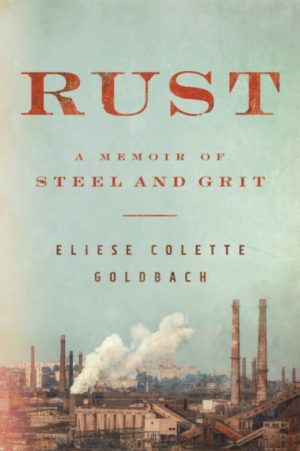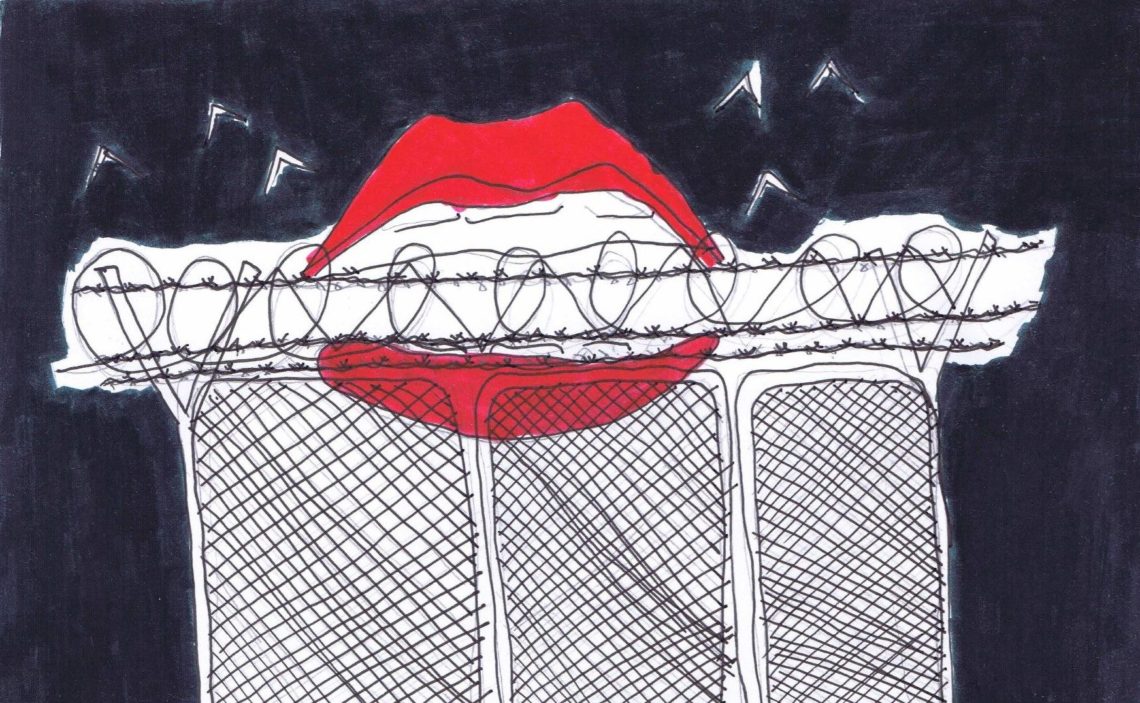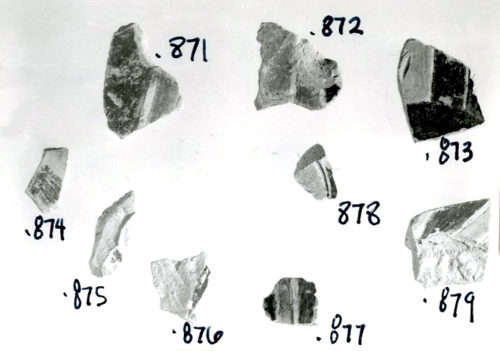-
“Rust: A Memoir of Steel and Grit by Eliese Colette Goldbach” Reviewed by LaVonne Roberts
Forged In Steel, A Nation Divided
In Rust: A Memoir of Steel and Grit, Eliese Colette Goldbach reflects on her childhood as the second daughter in a Polish Catholic family and her three years as a steelworker. As a little girl in Cleveland, she could often see the rust-colored buildings of the city’s steel plant in the distance when she rode through town with her father. Eliese never imagined her identity would become Utility Worker number 6691, or that Trump would become President.
“I wasn’t supposed to be a steelworker. I wasn’t supposed to spend my nights looking up at the bright lights on the blast furnace,
-
Four “Corn Songs” by Kinga Tóth (translated from the Hungarian by Timea Balogh) Drawings by Kinga Tóth
Corn Songs
song five
they pierce the ground with spoon straws
that’s how the roots will breathe
that’s how they’ll pull them out when they’re ripe
the others arrive behind the diggers
they write with felt pens
take away the dialect and unsettle everyone
they piss with their legs apart
and that’s when they forget what
they talked about at harvest time
they take the tongues out of their mouths
with which they were understood
and take pictures till they are distracted from the conversation
only the spoon-holding hands remain
squatting they examine the air-bagged roots
this will serve as amnesty and the writers
will be the only ones permitted to speak -
Deb Olin Unferth LIVE
JOIN US TODAY, APRIL 28 AT 7:30 p.m.
For the third installment of LIT Magazine’s newest series, LIVE with LIT, where book reviews come to life!
We all know by now, the cruelty of slaughterhouses and the inhumane treatment of animals all around the world, but have you ever thought of what it’d be like to see the world through the eyes of a chicken? Find out tonight when LaVonne Roberts interviews Deb Olin Unferth author of, Barn 8, a novel centered on the topic of industrial farming and the risks of ranking human life,
-
To California, Wine, Politics, Turtles, Nihilism, and My Heart, by Adam Scheffler
After Kenneth Koch
What a jumble,
I don’t know if it’s a good idea to have all of you here
Especially you wine and politics!
Though you my heart and turtles go together always
And even politics and turtles sounds good.But in any case here you all are:
I wake up and my heart is holding you all like a shopping cart
Full of hasty impulse purchasesWith California sticking out the back cartoonishly
Amidst the wine it’s known for
And politics snuggling next to but never quite touching nihilism, -
University Town by Michael Homolka
Up steep hills which crack open like pebblesthe green-black ocean wandersin the form of a human among low squat
brick facades old typewriter paperand armchairs subconsciously withinlost as all academia to self-absorption
hands in back pockets inquiringof the psychological grass whether it perceivesitself to flow uphill mostly or downJoycean that is to say or Virginian
Sorting stackfuls of family photos
most of which it plans to toss out anyway
between existences the brainy seaweedsoaks up all possible inferences
as to the ocean Whether literal or metaphoric
whatever anyone believes in whatever
way they believe it : it’s the opposite*
Michael Homolka’s collection, -
“The Salvage Yard” by Emma Burcart
The highway cut through the center of town and continued out into the country, wherewide expanses of grass and trees were dotted with the occasional mobile home, gas station, or church. Not much to do or see and most people drove through fast on their way to somewhere else, without looking out their windows. When outsiders came, it wasn’t on purpose and they never stayed long. Directions, a tank of gas and a cup of coffee, and they were gone. That was how everyone in town liked it; not being on the map was a point of pride for most.




